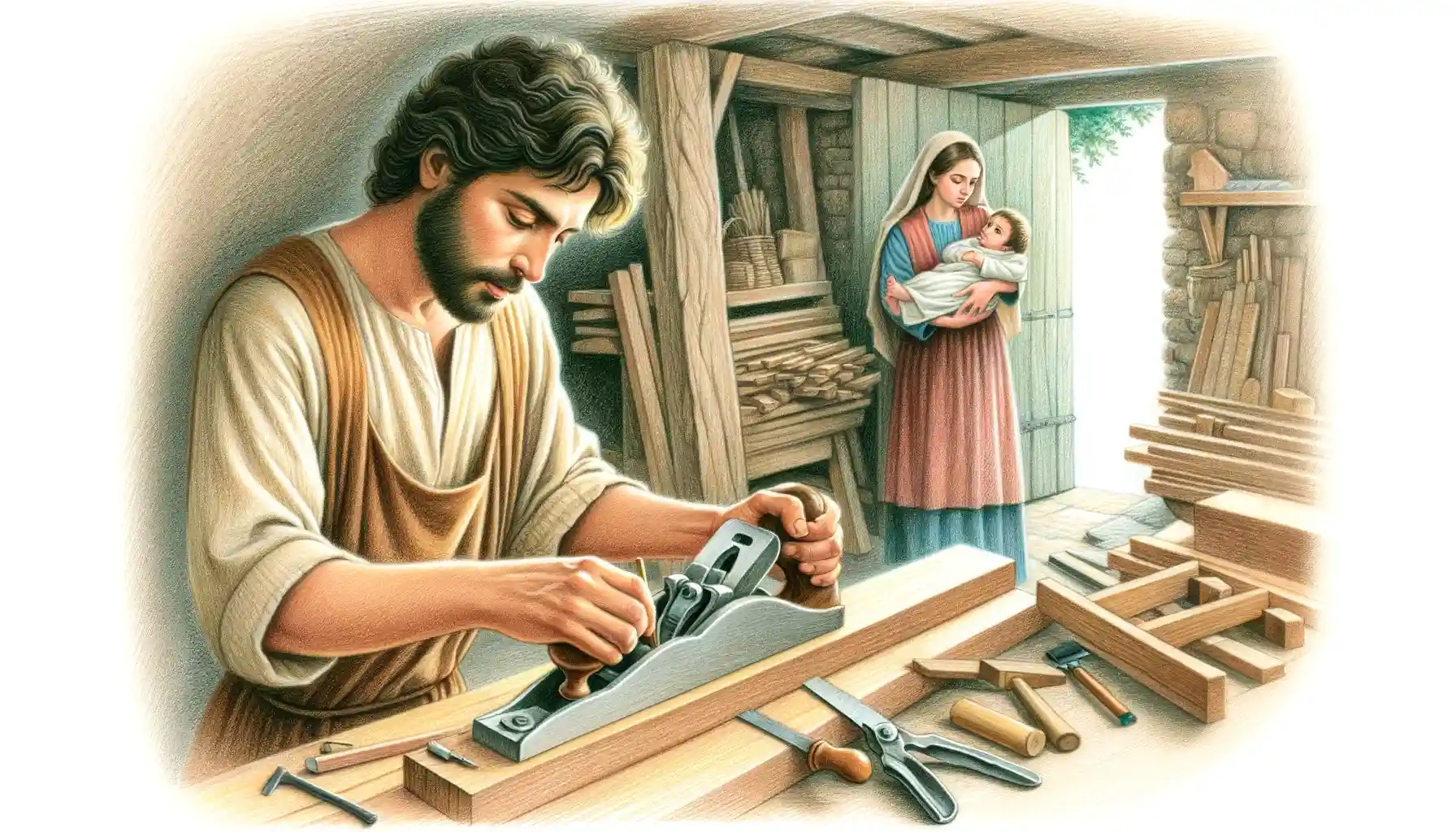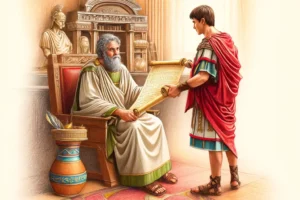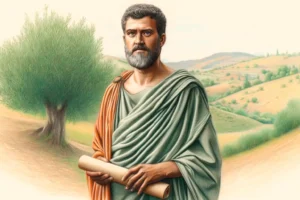
Joseph: Foster father of Jesus, a Carpenter
Joseph, the husband of Mary, is known as the foster father of Jesus and a carpenter by trade. He played a crucial role in the early life of Jesus, providing protection and support for his family.
Quick Facts
- Descendant of David: Joseph was a descendant of King David, fulfilling the Messianic prophecy of Jesus’s lineage.
- Betrothed to Mary: He was betrothed to Mary when she was found to be pregnant by the Holy Spirit.
- Angel’s Assurance: An angel appeared to Joseph in a dream, reassuring him to take Mary as his wife.
- Carpenter by Trade: Joseph worked as a carpenter, a humble and skilled profession.
- Journey to Bethlehem: He took Mary to Bethlehem for the census, where Jesus was born.
- Flight to Egypt: Joseph led his family to Egypt to escape King Herod’s decree to kill all young male children.
- Return to Nazareth: After Herod’s death, Joseph returned with his family to Nazareth, where Jesus grew up.
- Supportive Father: Joseph is often depicted as a protective and supportive figure in Jesus’s early life.
Lineage and Betrothal
Joseph is introduced in the Gospels of Matthew and Luke as a righteous man from the lineage of David (Matthew 1:1-16, Luke 3:23-38). This lineage is significant as it fulfills the Old Testament prophecies that the Messiah would come from David’s line (2 Samuel 7:12-16). Joseph’s betrothal to Mary, a young woman from Nazareth, was a legally binding engagement, a significant step in Jewish marital customs.
Revelation and Acceptance
When Joseph discovered that Mary was pregnant, he initially decided to divorce her quietly to avoid public disgrace (Matthew 1:19). However, an angel of the Lord appeared to him in a dream, explaining that Mary’s child was conceived by the Holy Spirit and would be named Jesus, for He would save His people from their sins (Matthew 1:20-21). Obedient to the divine message, Joseph took Mary as his wife, demonstrating his faith and righteousness.
Role as a Carpenter
Joseph’s profession as a carpenter (Matthew 13:55) indicates he was a skilled craftsman, providing for his family through manual labor. This occupation, while humble, was respected and allowed him to teach Jesus the value of hard work and craftsmanship. The Greek word used for carpenter, “tekton,” suggests that Joseph could have worked with wood, stone, and possibly metal.
Journey to Bethlehem and Jesus’s Birth
Obeying the decree of Caesar Augustus for a census, Joseph traveled with Mary from Nazareth to Bethlehem, the city of David (Luke 2:1-5). Despite the challenging journey, Joseph ensured Mary’s safety and found shelter in a stable where Jesus was born (Luke 2:6-7). This event fulfilled the prophecy that the Messiah would be born in Bethlehem (Micah 5:2).
Flight to Egypt
After Jesus’s birth, the family faced danger from King Herod, who ordered the massacre of all male infants in Bethlehem (Matthew 2:13-16). Warned by an angel in a dream, Joseph took Mary and Jesus to Egypt, ensuring their safety. This journey to and return from Egypt also fulfilled prophetic scripture (Hosea 11:1).
Return to Nazareth
Following Herod’s death, Joseph was again guided by an angel to return to Israel. Choosing to settle in Nazareth to avoid the new ruler of Judea, Archelaus, Joseph provided a stable environment for Jesus to grow up (Matthew 2:19-23). Nazareth would be the place where Jesus spent his childhood and adolescence, and it was here that He would be known as a “Nazarene.”
Supportive Father and Protector
Throughout these events, Joseph’s role as a protective and supportive father is evident. His quick obedience to divine instructions and his commitment to Mary and Jesus highlight his character as a man of faith, integrity, and dedication. Joseph’s presence in Jesus’s early life ensured the fulfillment of several prophecies and provided a nurturing environment for the young Jesus.
Theological Significance
Joseph’s story emphasizes several key themes:
- Obedience to God: Joseph’s actions consistently reflect his obedience to God’s guidance, even in challenging circumstances.
- Faith and Righteousness: Joseph’s faith in accepting Mary and his role as Jesus’s earthly father exemplify his righteousness and trust in God’s plan.
- Protection and Provision: His role as a protector and provider for Mary and Jesus underscores the importance of familial responsibility and care.
Legacy and Impact
Joseph’s legacy is honored in both Christian tradition and art, often depicted as a caring and protective figure. His faithfulness and obedience continue to inspire believers to trust in God’s guidance and to uphold their responsibilities with integrity and dedication.
Conclusion
Joseph, the husband of Mary and foster father of Jesus, played a pivotal role in the early life of Jesus, providing protection, support, and a model of faith and obedience. His story highlights the importance of trust in divine guidance and the fulfillment of God’s promises.



